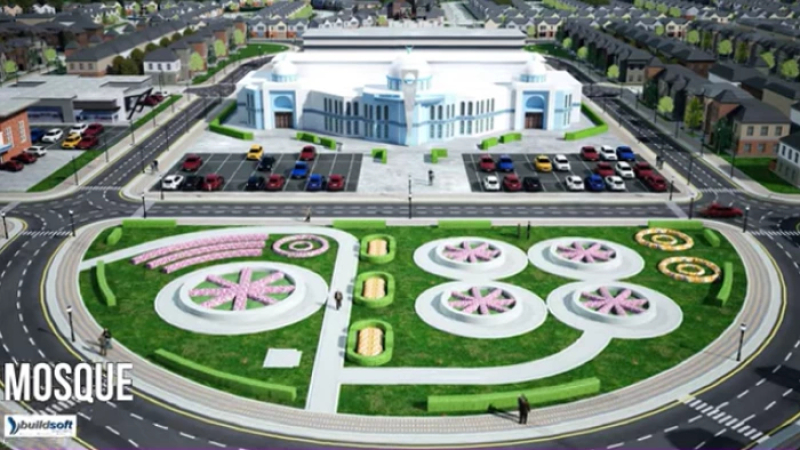
A Muslim-centered development proposal in North Texas appears to be resurfacing under a new identity after its creators removed earlier online content and reworked promotional materials in response to ongoing state investigations and recently enacted legislative measures.
The 400-acre project, first introduced as EPIC City — a planned expansion connected to the East Plano Islamic Center (EPIC) — was slated for land in unincorporated Collin and Hunt counties near Josephine, roughly 40 miles northeast of Dallas.
Envisioned as a community featuring 1,000 homes, a mosque and community center, a school, and other amenities designed for Muslim families, the initiative halted earlier this year after running into legal and political resistance.
On Nov. 8, Collin County Judge Chris Hill posted an update on Facebook, indicating that developers at Community Capital Partners, LLC (CCP) may soon move forward with new filings, beginning with a rebranding effort. “According to a diagram of the planned neighborhood, the developers have changed the name of the project to The Meadow,” Hill wrote.
Hill added that there are “reports that CCP have filed or soon intend to file an application” with the Texas Commission on Environmental Quality to establish a municipal utility district for The Meadow.
CCP’s original EPIC City website — once advertising a “vibrant and inclusive community that serves the evolving needs of the Muslim community” and a “safe and purpose-built environment that fosters growth, connection, and prosperity for all who call EPIC City home” — now displays only a message stating, “New website coming soon!” accompanied by an email contact.
Archived versions from May 2024 show the former site’s emphasis on a prominent mosque at the center of the master plan, imagery that has since been removed. Additionally, Islamic scholar Yasir Qadhi, whose photos and videos were previously featured in promotional materials, no longer appears on the site.
The project first drew significant backlash during a crowded Collin County commissioners court meeting on March 31, where officials discussed details of the proposed EPIC expansion. At the time, Judge Hill said he would oppose any plan that “violates Texas or federal law,” while County Administrator Yoon Kim countered that if a development “meets state and local laws, the county has a ministerial duty to approve it.”
By May, the dispute reached statewide political attention. Texas Gov. Greg Abbott asserted on X that there was “no construction” occurring on the farmland and claimed the state had “halted any construction of EPIC City.” Developers disputed Abbott’s remarks, maintaining the project had not progressed beyond early planning stages.
In June, the U.S. Department of Justice closed a civil rights inquiry launched after requests from Republican U.S. Sen. John Cornyn. The agency concluded its review after CCP “affirmed that all will be welcome in any future development” and committed to revising its promotional language to “reinforce that message” in accordance with the Fair Housing Act.
Texas, home to an estimated 313,000 Muslim residents — including nearly 150,000 in the Dallas-Fort Worth metro area — hosts one of the largest Muslim communities in the nation.
EPIC, located in Plano, began operating in July 2015 as a nonprofit “formed exclusively for educational, religious, and social purposes” and describes itself as “a multi-ethnic, multi-racial, multi-lingual, non-sectarian, diverse, and open community committed to full and equal participation and involvement of men and women who are community members of EPIC and subscribe to accept its rules, regulations, and procedures.”



















